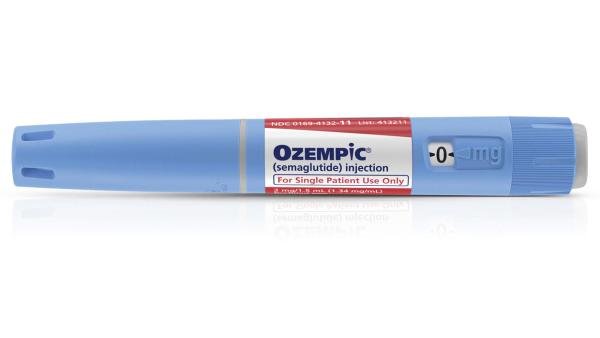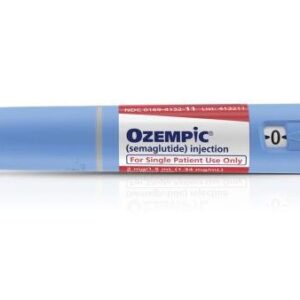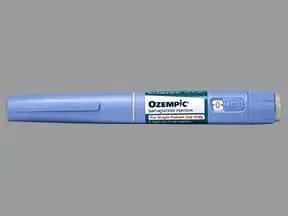Ozempic 2 mg/3 mL (0.68 mg/mL) prefilled pen that delivers 0.25 mg or 0.5 mg per injection
Ozempic 2 mg/3 mL (semaglutide) is a once-weekly injectable medication prescribed to improve blood sugar control in adults with type 2 diabetes. This specific formulation delivers a 2 mg dose of semaglutide from a 3 mL prefilled pen, with a concentration of 0.68 mg/mL. It is intended for patients who have already completed dose escalation using the lower-strength versions of Ozempic, such as 0.25 mg, 0.5 mg, or 1 mg. The 2 mg dose is used for ongoing blood sugar management when additional glycemic control is needed.
Mechanism of Action Ozempic 2 mg/3 mL (0.68 mg/mL) prefilled pen
Semaglutide mimics the body’s natural GLP-1 (glucagon-like peptide-1) hormone. It works by increasing insulin secretion in response to elevated blood sugar levels, reducing glucagon release from the liver, and slowing gastric emptying. These actions help improve blood glucose levels and may also reduce appetite, which can contribute to weight loss in some patients.
Dosage and Administration
The 2 mg dose is administered once weekly using the prefilled pen. The injection is given subcutaneously in the abdomen, thigh, or upper arm, on the same day each week, at any time of day, with or without meals. The pen is designed for ease of use and comes with four disposable NovoFine® Plus needles. It is intended for single-patient use and should be discarded once the pen is empty.
Storage Instructions
Before first use, the Ozempic 2 mg/3 mL should be stored in a refrigerator between 36°F and 46°F (2°C to 8°C). After the first use, it can be stored in the refrigerator or at room temperature, not exceeding 86°F (30°C), for up to 56 days. The pen must not be frozen and should be protected from direct sunlight and excessive heat of ace cart.
Safety Information
Ozempic® is not recommended for individuals with type 1 diabetes or for use as an initial therapy for type 2 diabetes. It should not be used by patients with a personal or family history of medullary thyroid carcinoma (MTC) or multiple endocrine neoplasia syndrome type 2 (MEN 2). Common side effects may include nausea, vomiting, diarrhea, abdominal pain, and decreased appetite. More serious risks include pancreatitis, kidney problems, gallbladder disease, and the potential for thyroid tumors.
Clinical Considerations
This Ozempic 2 mg/3 mL formulation is considered a therapeutic maintenance dose. It is prescribed when patients have tolerated and responded to lower doses, but still require stronger glucose control. Regular monitoring by a healthcare provider is essential to assess efficacy and manage any potential side effects.






Reviews
There are no reviews yet.